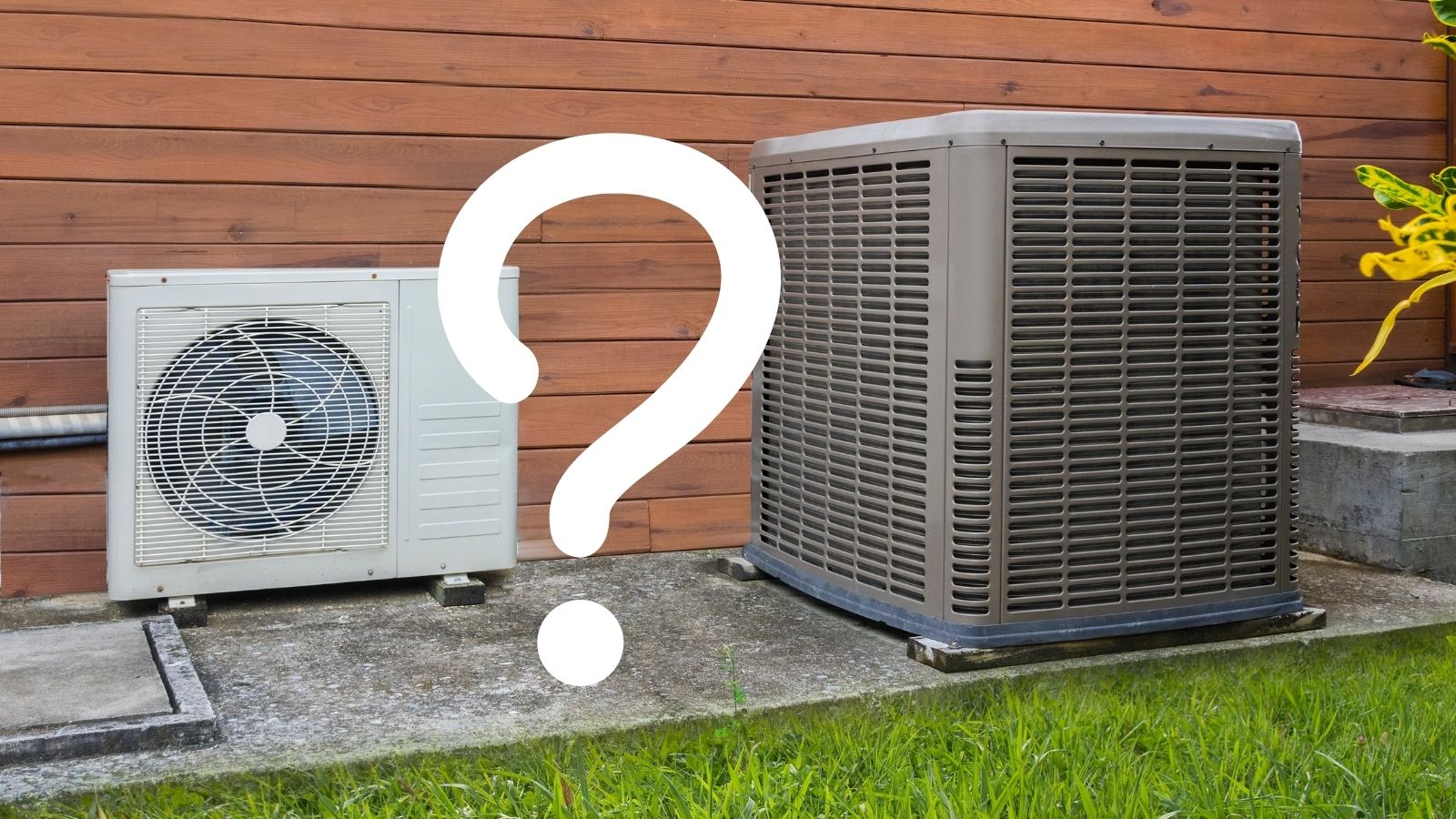
What is the difference between a heat pump and AC?
A fan coil system is a type of heating and cooling system that utilizes a fan coil unit to distribute conditioned air throughout your home. It is often used in conjunction with a heat pump or chiller to provide both heating and cooling capabilities. The fan coil unit is the heart of the system. It consists of a fan, a heat exchanger, and a set.
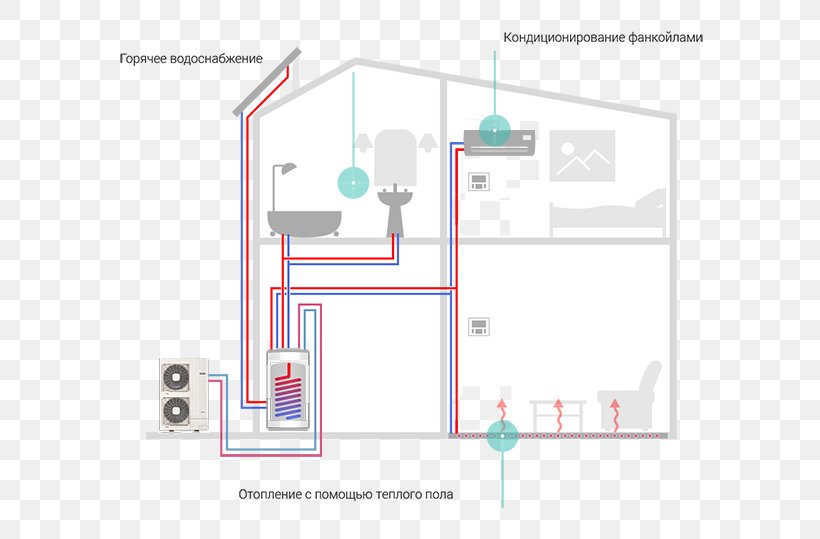
Sale > heat pump fan coil unit > in stock
Fan coil units, or FCUs, are a component of your HVAC system that support airflow. Learn about fan coils in your home, how FCUs work, & when to upgrade. Sale Goodman. Goodman 2 TON 14.3 SEER2 Multi-Position Heat Pump condenser and air handler (GSZB402410, AMST24BU1400). and an all-aluminum evaporator coil. Amana Heat Pumps Systems.

Heat Pump Fan Coil Duct Installation Concealed Fan Coil Unit China Fan Coil and Chiller Fan Coil
By complementing your heat pump, furnace and/or air conditioner, fan coils can help lower your energy costs. Heat Pumps In basic terms, heat pumps remove heat energy from your home in summer and bring heat energy into your home in winter. The two basic types of heat pumps are air-source heat pumps and ground-source heat pumps.

China Room Heating and Cooling Indoor Heat Pump Fan Coil Unit China Fan Coil Unit, Indoor Fan
The thermostat fan motors allows on off type control or modulate 0-10v control.It also supports multiple connection interface like a KNX Fan Coil ,Thermostat, Bacnet Fan Coil Thermostat, Modbus Fan Coil Thermostat. It allows change-over sensor connection to do automatic switch over of winter heating and summer cooling. Heat Pumps

Effortless Comfort at Your Fingertips Exploring Fan Coil Controls Apollo Heat Pumps
A fan coil unit consists of a fan that blows room air over a coil of finned pipes that carry heated or chilled water. Some types have a single coil supplied with hot water, these can only heat the air. Others types have a single coil supplied with chilled water, these can only cool the air. Yet others have 2 coils and and heat or cool the air.

Vad är en värmepumps effektiva temperaturområde? Maritime Geothermal Ltd. Organic Articles
The average cost of a heat pump is between $700 and $2,800 and geothermal heat pumps cost $2,200 to $4,420. With labor, you can expect to pay around $5,000 to $8,200. If you opt for a mini-split, costs can be less. A ductless heat pump costs $1,300 to $8,000. Higher SEER scores mean that your unit will use less energy.
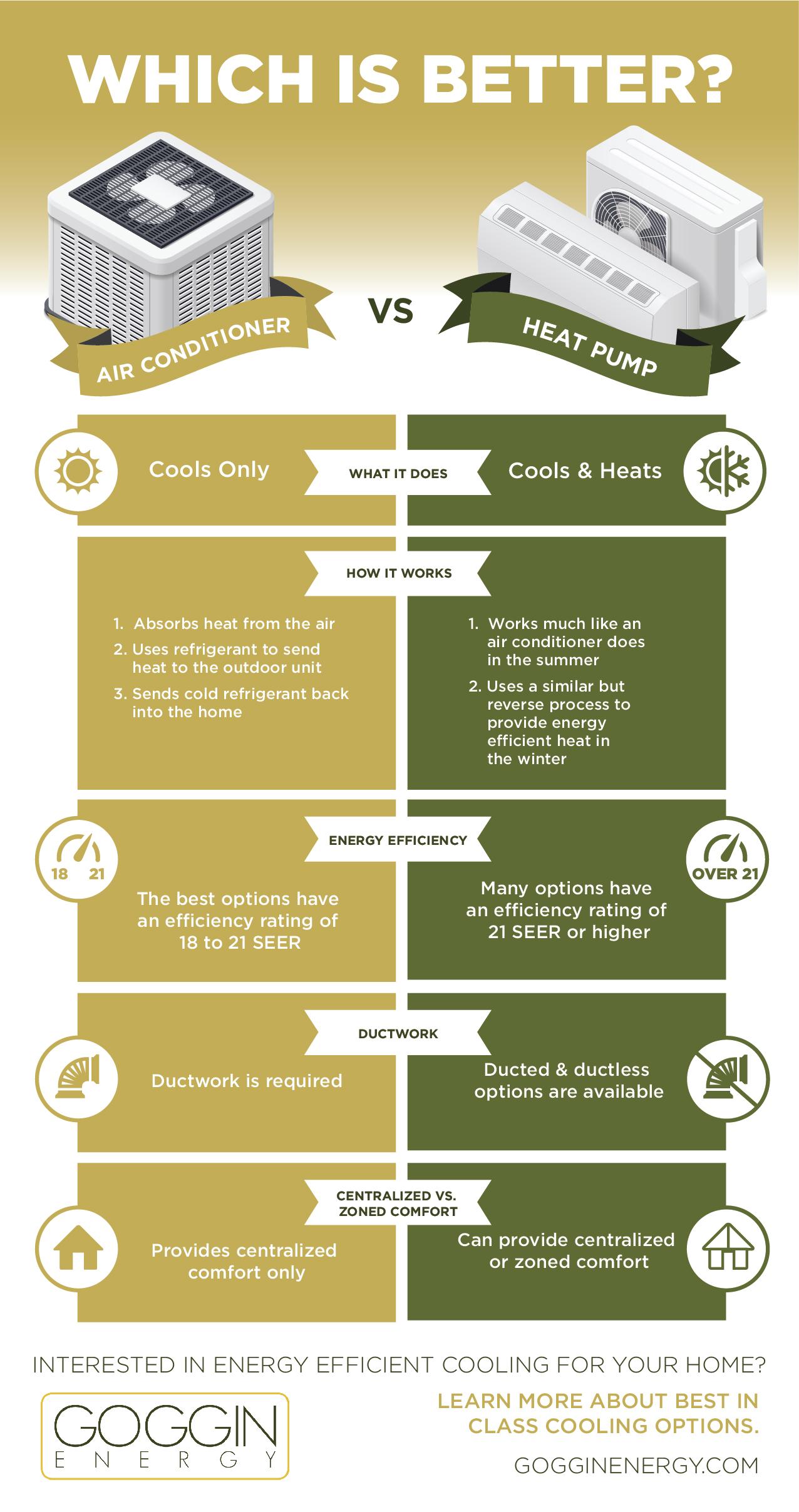
Air Conditioners vs. Heat Pumps Goggin Energy Southern ME
Compare Quotes From Top-rated Heating And Cooling Contractors. Free, No-commitment Estimates. Find a Contractor. What are the differences between heat pumps and air conditioners? Here's.

How Is A Heat Pump Different From an Air Conditioner?
Water source heat pumps use cooling towers or geothermal loops to extract heat, while fan coil units use hot or cold water in coils to transfer heat. Therefore, if energy efficiency is a top priority, water source heat pumps should be considered over fan coil units. 3. Humidity Control.
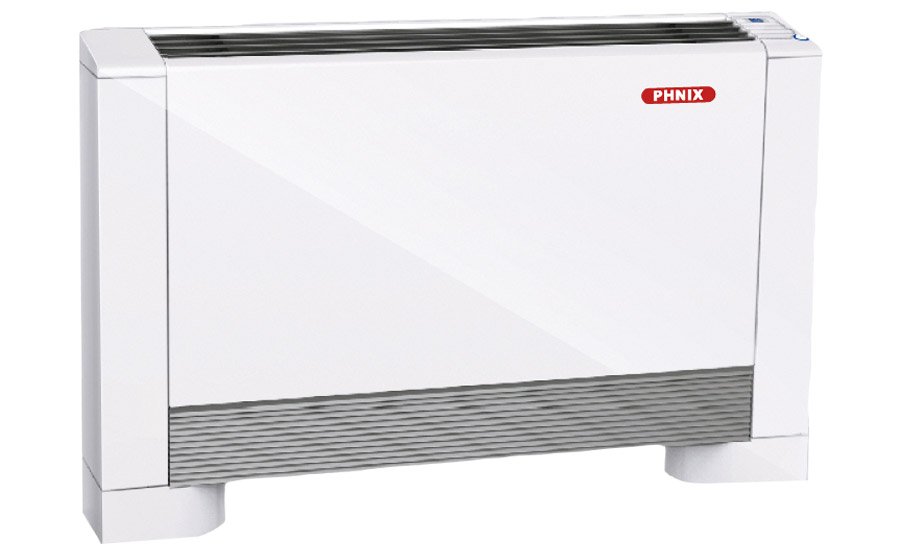
Ultra Thin Fan Coil PFP025V Arctic Heat Pumps
It involves connecting the fan coil unit to the outdoor unit or heat pump. Follow these steps: Identify the refrigerant lines coming from the outdoor unit and the fan coil unit. Connect the refrigerant lines, ensuring a tight and secure fit. Use appropriate tools and techniques to make leak-free connections.

Sale > heat pump fan coil unit > in stock
The air handler sits inside of your home, much like a furnace. It has an evaporator coil, and it can have an electric heater package, which contains heat strips. The evaporator coil is the cooling kit. It can also have an air filter as part of the unit or separate from it. If you don't have a furnace, this is an essential part of an HVAC system.
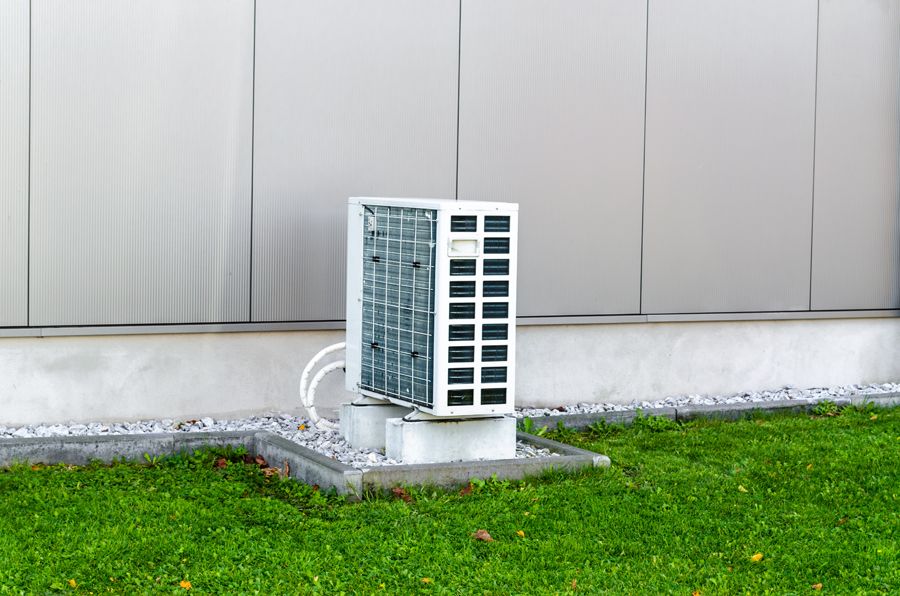
Air Conditioners Versus Heat Pumps HVAC in Rocklin, California
The fan coil uses water in the coil to transfer heat, while the heat pump uses refrigerant. The fan coil is cheaper but less energy efficient and comfortable. Heat pumps are more expensive but more energy-efficient and comfortable. Choose the system based on your home size, layout, climate, budget, and preference.
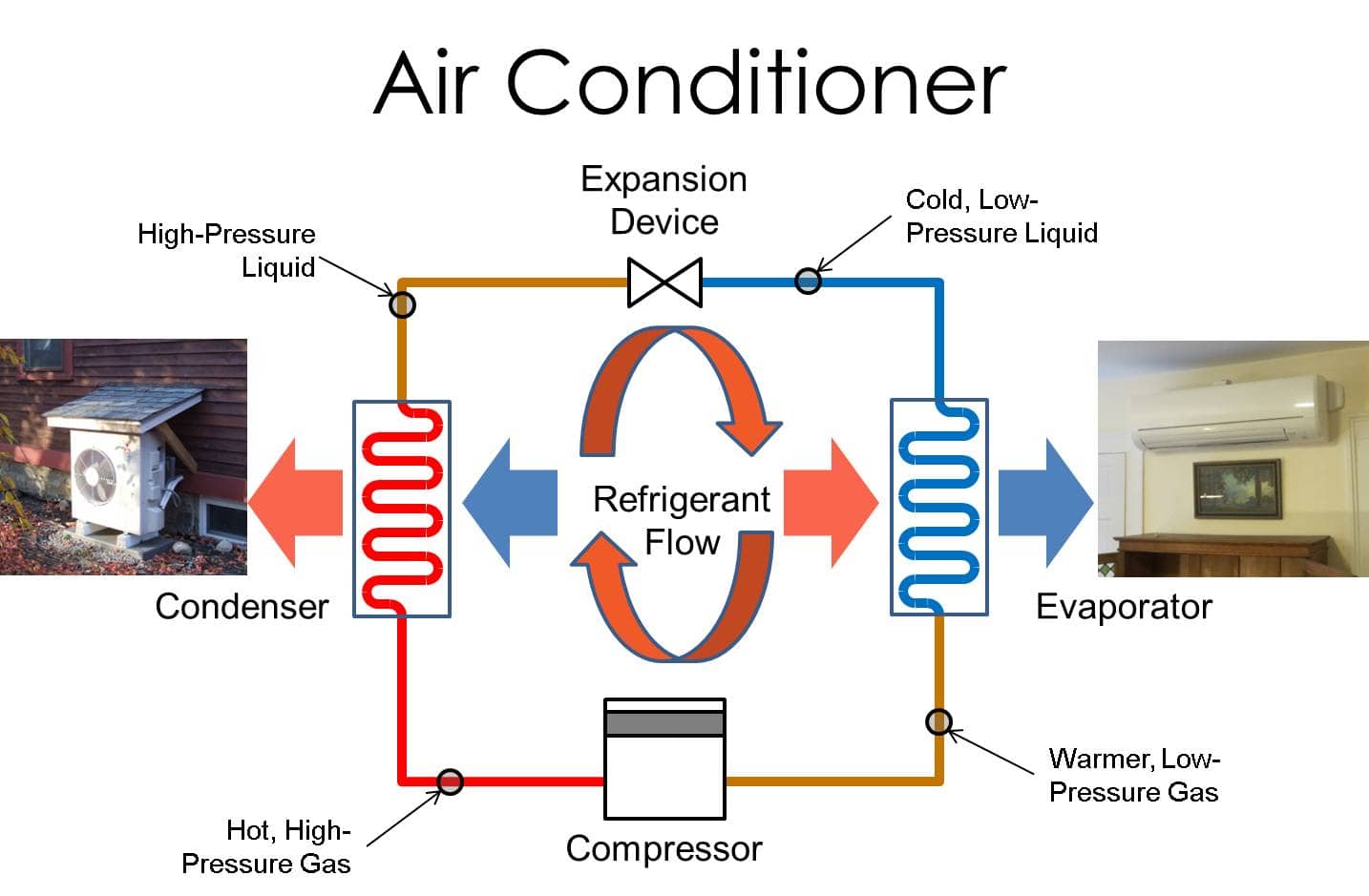
How Does A Heat Pump Air Conditioner Work Basic How To S Of Heat Pump Systems In a ductless
A heat pump can pump hot air out of your home to cool you off, or it can reverse the flow, pushing warm air into your home to heat it up. By contrast, a conventional air conditioner (AC) can only cool the air. We take a look at the key differences between a heat pump vs. an air conditioner, along with the factors that go into heat pump and air.
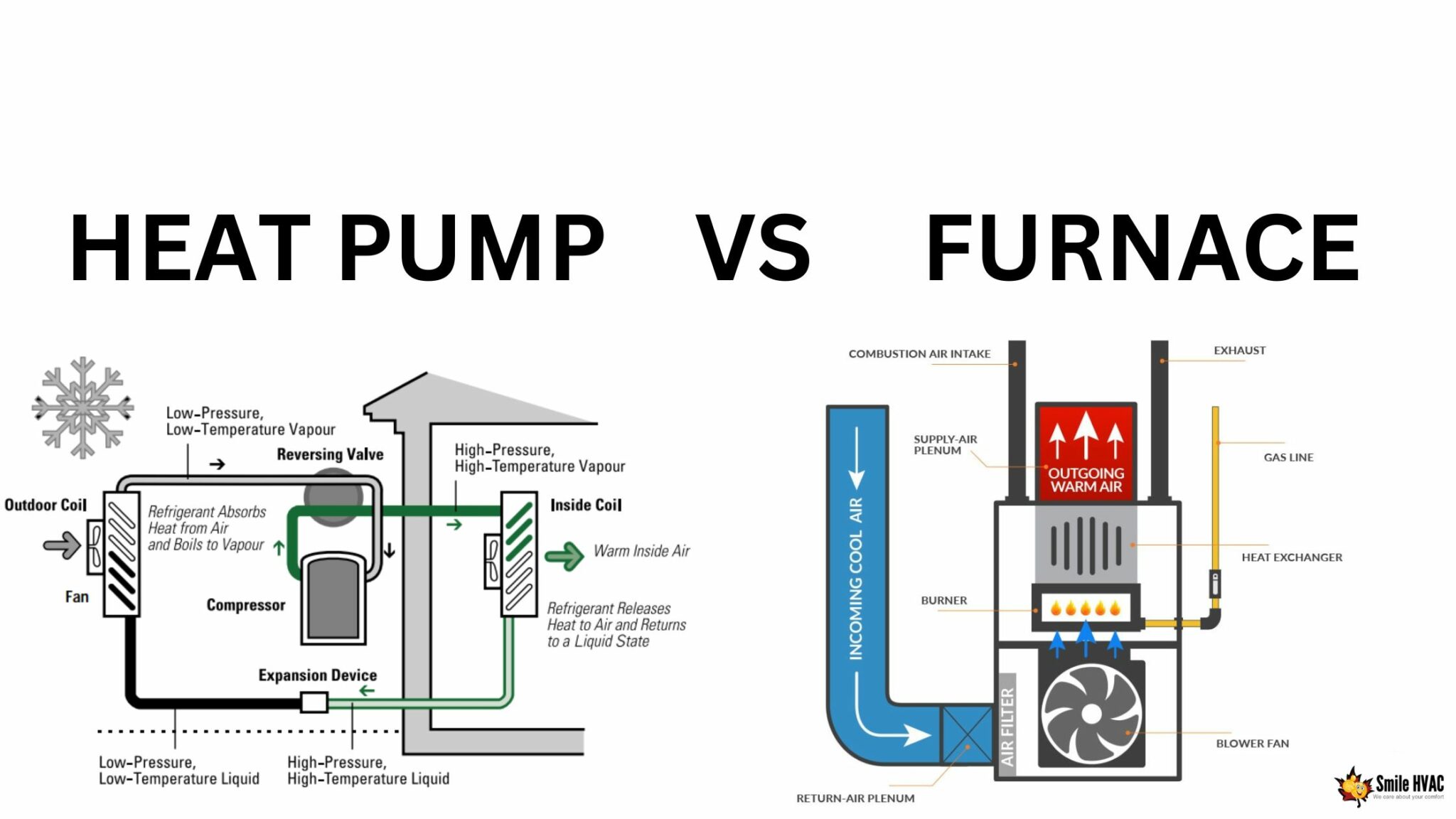
Heat Pump vs Furnace Which Should You Choose?
Yes, fan coil units use refrigerant to cool or heat the air in a room. Refrigerant is placed inside the indoor coil of an FCU and when the fan is turned on, it forces air through this coil which either heats or cools it depending on the desired temperature. The cooled or heated air is then sent into the room to maintain a comfortable environment.
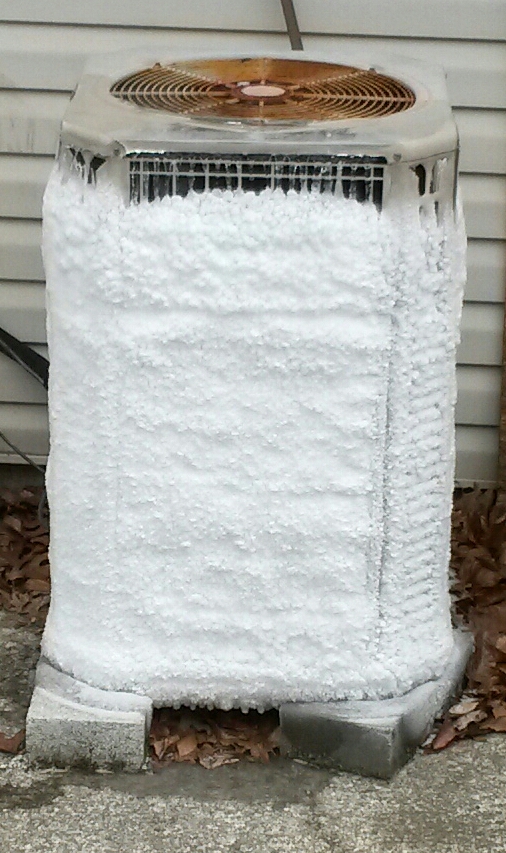
Why Does My Heat Pump Frost Over? Energy Vanguard
A fan coil unit (FCU) is a stand-alone indoor heating and cooling unit that is not typically connected to ductwork. Fan coil units can control individual rooms' temperature or connect to ductwork to serve multiple spaces. Some fan coil units are paired with air conditioners, heat pumps, or furnaces. Fan coil units are ideal climate control.
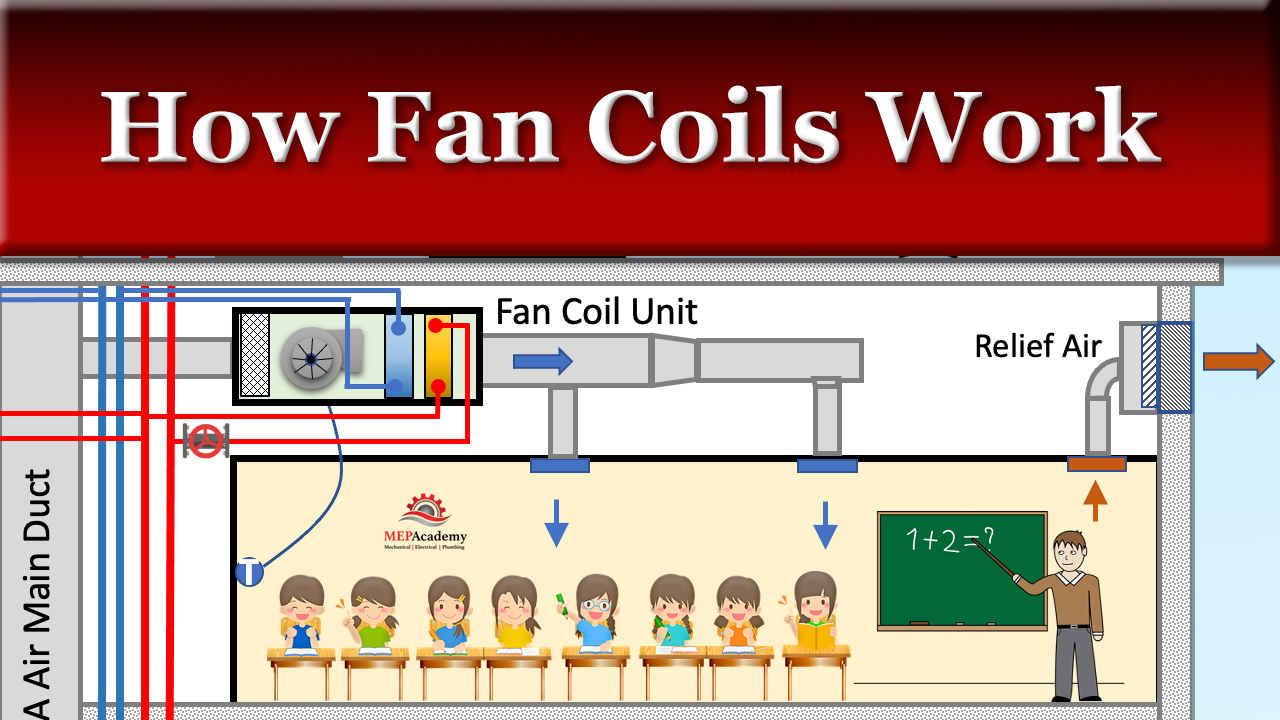
Image Schematic Fcu
Fan coil systems offer precise temperature control and quick response times, making them ideal for spaces with varying heating and cooling needs. Heat pumps, on the other hand, are more energy-efficient and environmentally friendly, making them a suitable choice for those prioritizing sustainability and long-term cost savings.

Water to Heat Pump + Fan Coil + Radiant Floor Schematic Shine Energy Systems Inc.
A fan coil unit is made up of a fan and either a heating or cooling element to provide warmth during the colder months of the year and cool air during summer. In most cases, they can be used on devices like ductless heat pumps because they aren't connected to traditional ventilation. Besides residential and commercial buildings that don't.
- Chicabode Net Transform Your Living Room With Mid Century Modern Design
- Fudge Au Micro Onde Eagle Brand
- Fleetwood Mac Fleetwood Mac Vinyl
- Soupe Au Chou Et Riz
- Cabins For Rent In Nordegg Alberta
- Van Cleef Holiday Pendant 2023
- Creedence Clearwater Revival Bayou Country Cd
- Snowmobile For Rent Near Me
- The Beginning After The End Ch 1
- Farm Houses For Sale In Ontario